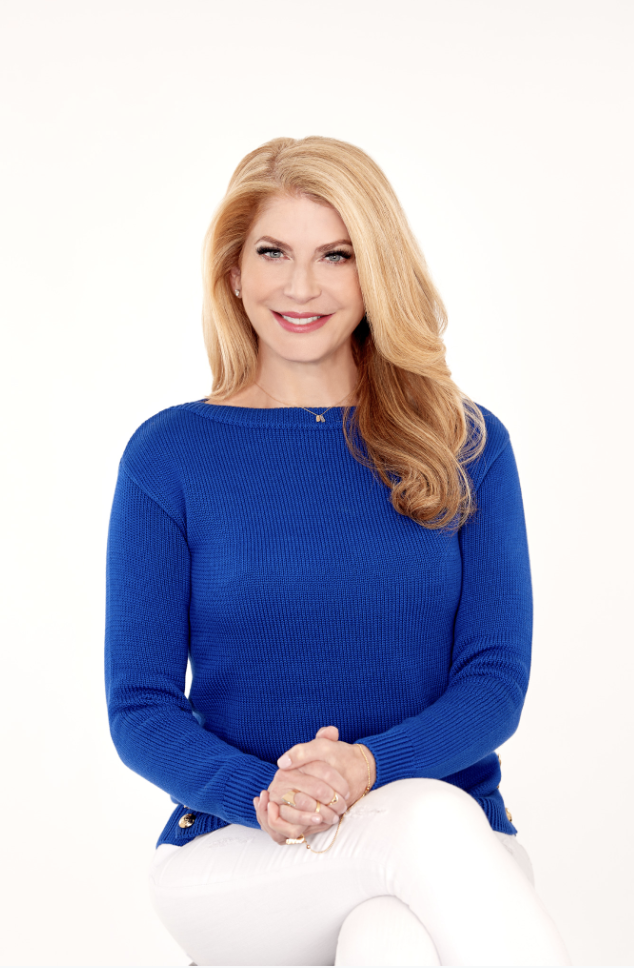4 Tips To Help You Improve Your Odds
Thrive Global invites voices from many spheres to share their perspectives on our Community platform. Community stories are not commissioned by our editorial team, and opinions expressed by Community contributors do not reflect the opinions of Thrive Global or its employees. More information on our Community guidelines is available here.
By
- Jennifer Guttman, Clinical Psychologist: Children, Adolescents, Adults, Couples

One of my most daunting challenges as a cognitive-behavioral therapist is to motivate and help people change patterns of behavior in their lives that stifle and make them feel uncomfortable. Sometimes, people get hamstrung by reenactments of patterns that have encumbered them for many years.
The roots of these behaviors may stem from adults in your lives who influenced you as a child. You may have integrated them into your lifestyle as a replica of said behavior, or adapted to them as the exact opposite. Frequently, these behavior patterns are maladaptive and interfere with our accurate assessment of a situation—and they can trigger long held sensitivities.
The more you are conscious of your patterns, the better your chances are of releasing yourself from them. However, identifying the patterns that need to change isn’t necessarily easy for everyone. So, I’ve identified four crucial categories that often trigger undesirable patterns that can affect us at home, work, or both. The categories are Authority, Intimacy, Employment, and Self-Concept.
Awareness is the most crucial aspect of stopping maladaptive patterns in our lives. Once you identify the patterns in your life, note when they’re activated. Try to assess from an aerial view and focus on the categories that you sense are influencing you the most. If you don’t feel one or two of the areas apply to you, disregard them.
If you sincerely want to break disruptive behavioral patterns in your life, you need to be transparent, authentic, and capable of looking into the mirror. For each category, ask yourself,
“Do I do this?”
1. Authority Patterns:
Helpless victim—play the role of a martyr with no influence over the situation?
Intimidator—cross boundaries to find out information that feels necessary for me to know, or act like a bully?
Press to be the boss–-fuel the need to get my way and become frustrated, resentful, and revengeful when I don’t?
2. Intimacy Patterns:
Fear of commitment—avoid relationships that require vulnerability?
Clingy—express neediness and dependency towards others to feel safe?
Withdrawn—become cold or shut down when a relationship becomes too intimate, or conflict occurs?
3. Employment Patterns:
Workaholic—use work as an escape and your only source of value above other aspects of life?
Underachiever—fear failure and use it as an excuse not to achieve a level of success commensurate with your intellect?
Feel trapped—complain about having no options, agency, or choices within the decision-making process at work?
4. Self-Concept Patterns:
Comparing yourself to others—consistently judge and rate yourself against someone else and become dissatisfied because you feel they’re better than you?
Status focused—feel intimidated by the social strata and success by other people in your network?
“Special” syndrome—seek to be the center of attention in groups and desired by everyone and feel disappointed and frustrated when neither happens?
Remember to assess yourself with an open mind. Once you’re armed and aware of the patterns which are most problematic for you, re-evaluate and use that knowledge to make the changes you desire. Over time, you’ll feel more self-empowered and effective in handling interpersonal interactions successfully at home and work.

Jennifer Guttman, Clinical Psychologist: Children, Adolescents, Adults, Couples
Dr. Jennifer Guttman is a leading Cognitive Behavioral Therapist and Clinical Psychologist with over 20 years of experience in the field of mental health. She has built thriving practices in Manhattan, NY and Westport, CT that provide weekly services for over 120 clients. Last year, Dr. Guttman launched her new lifestyle motivational brand platform, Sustainable Life Satisfaction, via her popular YouTube six-episode web series, “A Path to Sustainable Life Satisfaction.” She recently debuted as an author with her newly published workbook of the same title, which is available in e-book and paperback on Kindle/Amazon.com. Through her interaction with thousands of clients, Dr. Guttman found that over 80% of people don’t feel “happy” about some aspect of their lives. Her mission is to motivate and inspire people think about happiness in a realistic way. She created her SLS brand and six core techniques as a blueprint to help people feel more empowered, self-reliant, masters of their lives and put them on a path to achieving sustainable life satisfaction.
Share your comments below. Please read our commenting guidelines before posting. If you have a concern about a comment, report it here.






